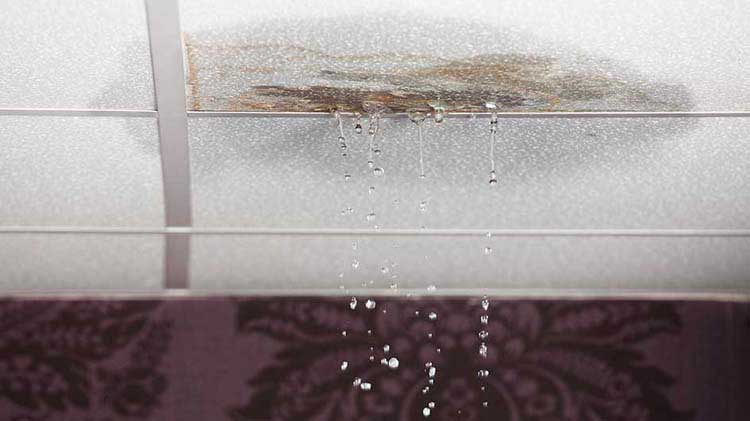Getting to Know The Factors Behind Water Leaks Happen Frequently Within Your Residence
Getting to Know The Factors Behind Water Leaks Happen Frequently Within Your Residence
Blog Article
We've found the article about Top Causes of Home Water Leaks listed below on the web and reckoned it made good sense to relate it with you on this site.

Leakages not just cause waste of water but can also create unneeded damages to your house as well as advertise unwanted organic growth. By looking and understanding for everyday situations that trigger leakages, you can safeguard your house from future leakages and unneeded damages.
Trespassing origins
Many water leaks begin outside your home as opposed to inside it. If you notice a sudden decrease in water pressure, say in your faucet, require time to head out as well as analyze your yard. You could discover damp spots or sinkholes in your backyard, which may indicate that tree roots are getting into water lines causing water to permeate out. You can have your plumber look for intrusion, specifically if you have trees or hedges near your residential or commercial property.
Rusty water supply
This may be the cause of staining or warping on your water pipelines. If our plumbing system is old, consider changing the pipelines since they are at a higher risk of corrosion than the more recent designs.
Defective Pipe Joints
The factor at which your pipelines attach is frequently the weakest web link in the waterline. Pipe joints can wear away in time, causing water leakages. The majority of pipe joints are not quickly visible. If you have noisy pipelines that make ticking or banging sounds, particularly when the hot water is turned on, your pipe joints are possibly under a great deal of pressure. It is advisable to have your plumber examine your system yearly.
Instant temperature modifications.
Severe temperature adjustments in our pipes can cause them to increase and get all of a sudden. This expansion as well as tightening might cause cracks in the pipelines, particularly if the temperature are below freezing. If you maintained an eye on just how your plumbing functions, it would be best. The visibility of the previously stated circumstances frequently indicates a high danger.
Poor Water Connectors
At times, a leakage can be triggered by loosened hoses and also pipes that supply your appliances. More often than not, moving is what creates the loose water Links. You might locate when it comes to a cleaning maker, a pipe may spring a leak due to drinking during the spin cycle. In case of a water connections leak, you might discover water running straight from the supply line or pools around your devices.
Blocked Drains
Clogged drains could be bothersome and inconveniencing, yet they can often end up creating an overflow leading to rupture pipelines. Keep getting rid of any type of products that might decrease your drains that could obstruct them to prevent such hassles.
All the above are sources of leakages but not all water leaks result from plumbing leakages; some leakages could originate from roof leaks. All leaks ought to be repaired right away to prevent water damage.
Leaks not only cause waste of water yet can additionally create unneeded damages to your home and promote undesirable natural growth. By understanding and looking for daily situations that create leaks, you can protect your residence from future leaks and unneeded damage. Today, we will certainly look at six leakage triggers that might be triggering your pipelines to leak.
At times, a leakage can be caused by loosened hoses as well as pipelines that supply your devices. In case of a water connections leak, you might discover water running straight from the supply line or puddles around your appliances.
How To Check For Water Leak In Your Home
How To Check for Leaks
The average household's leaks can account for nearly 10,000 gallons of water wasted every year and ten percent of homes have leaks that waste 90 gallons or more per day. Common types of leaks found in the home are worn toilet flappers, dripping faucets, and other leaking valves. These types of leaks are often easy to fix, requiring only a few tools and hardware that can pay for themselves in water savings. Fixing easily corrected household water leaks can save homeowners about 10 percent on their water bills.
To check for leaks in your home, you first need to determine whether you're wasting water and then identify the source of the leak. Here are some tips for finding leaks:
Take a look at your water usage during a colder month, such as January or February. If a family of four exceeds 12,000 gallons per month, there are serious leaks.
Check your water meter before and after a two-hour period when no water is being used. If the meter changes at all, you probably have a leak.
Identify toilet leaks by placing a drop of food coloring in the toilet tank. If any color shows up in the bowl after 10 minutes, you have a leak. (Be sure to flush immediately after the experiment to avoid staining the tank.)
Examine faucet gaskets and pipe fittings for any water on the outside of the pipe to check for surface leaks.
Undetected water leaks can happen without the home or business owner even realizing. If you suspect a water leak, but not able to find the source. It is time to contact a professional water leak detection service, The Leak Doctor.
How To Find a Water Leak In Your Home
https://www.leakdoctor.com/blog/How-To-Check-For-Water-Leak-In-Your-Home_AE197.html

As a passionate person who reads about Top Causes of Home Water Leaks, I thought sharing that chunk was a great idea. Be sure to take the opportunity to distribute this blog if you liked it. Thanks so much for going through it.
Professional help? One call away. Report this page